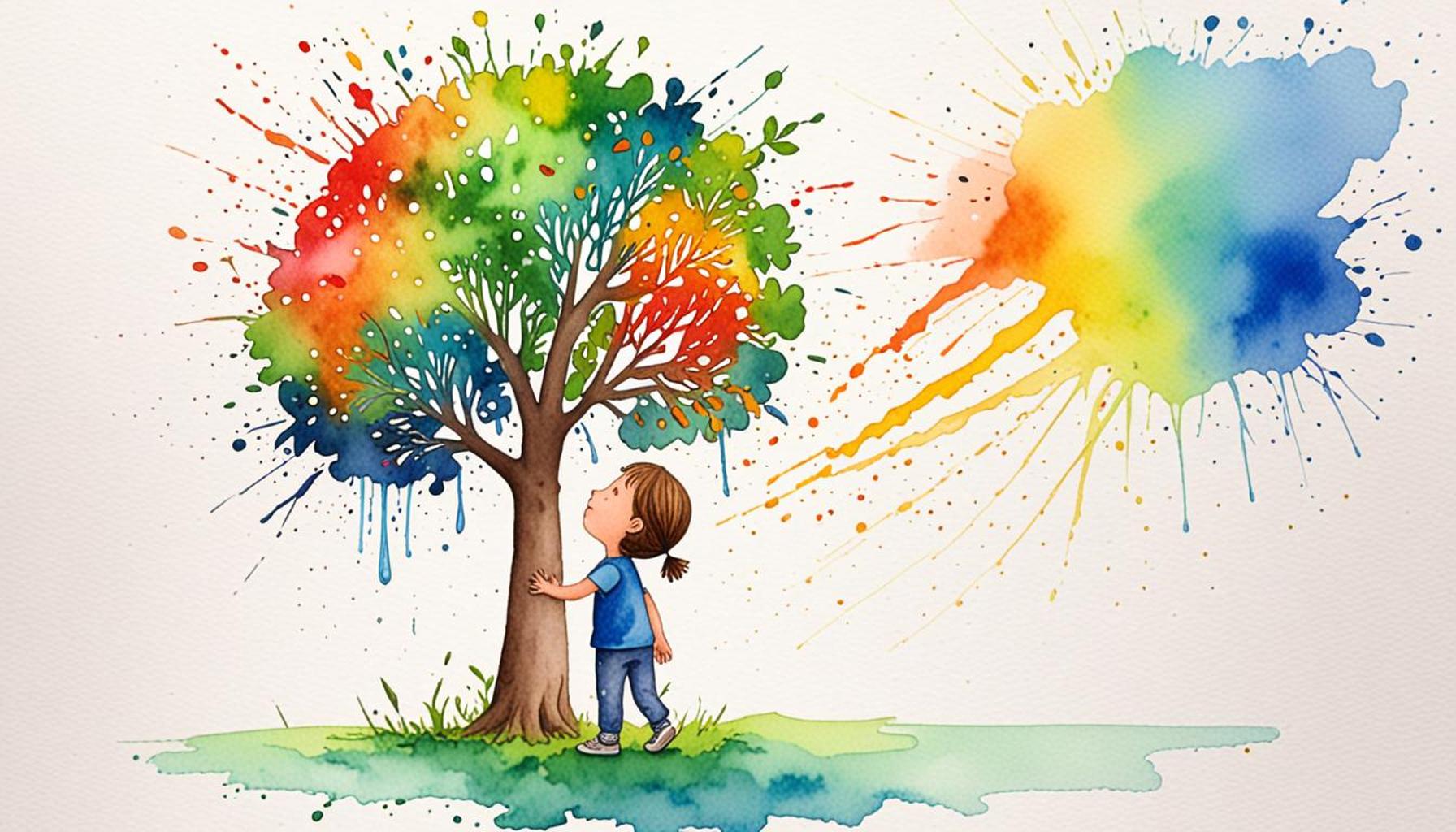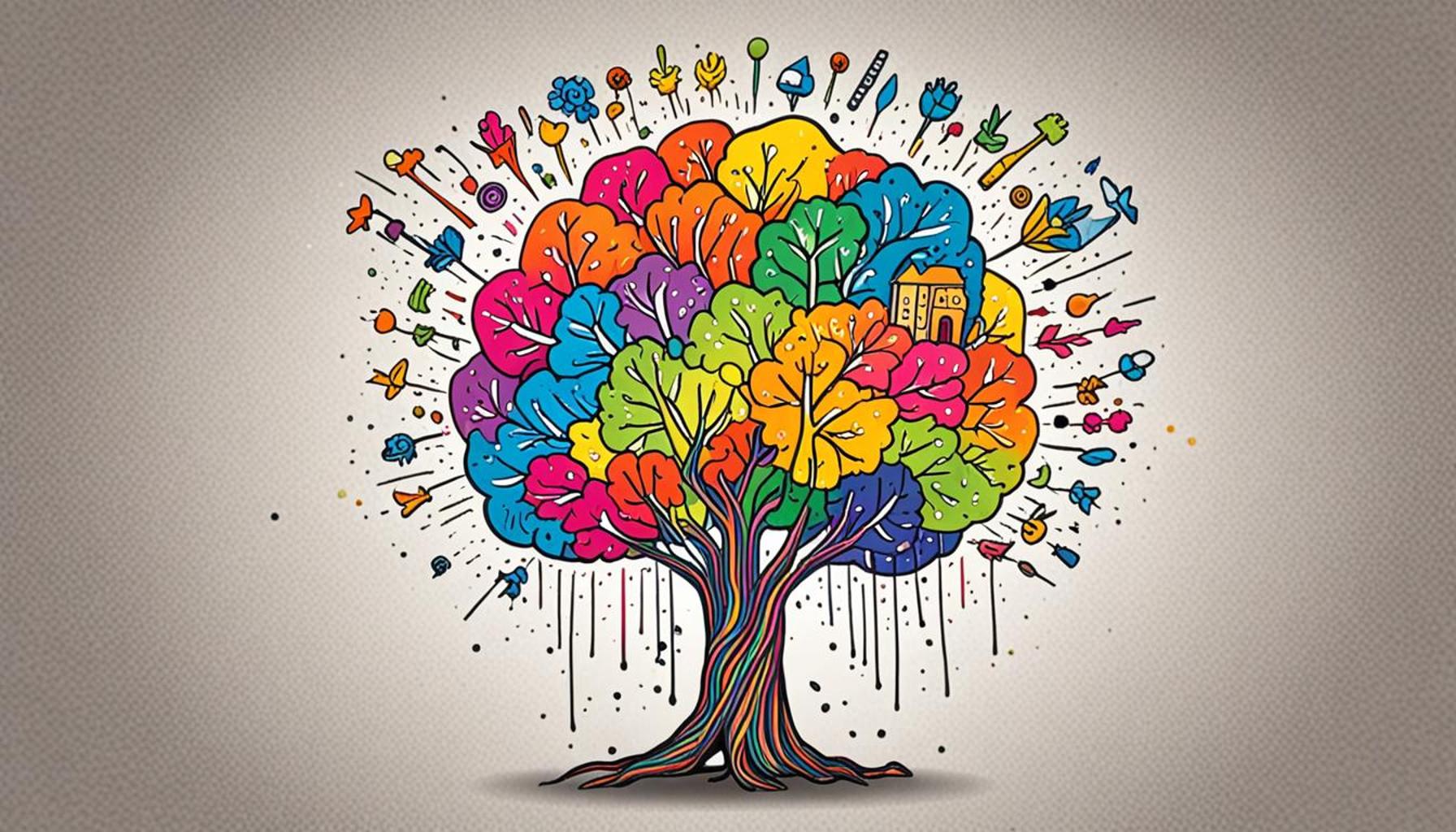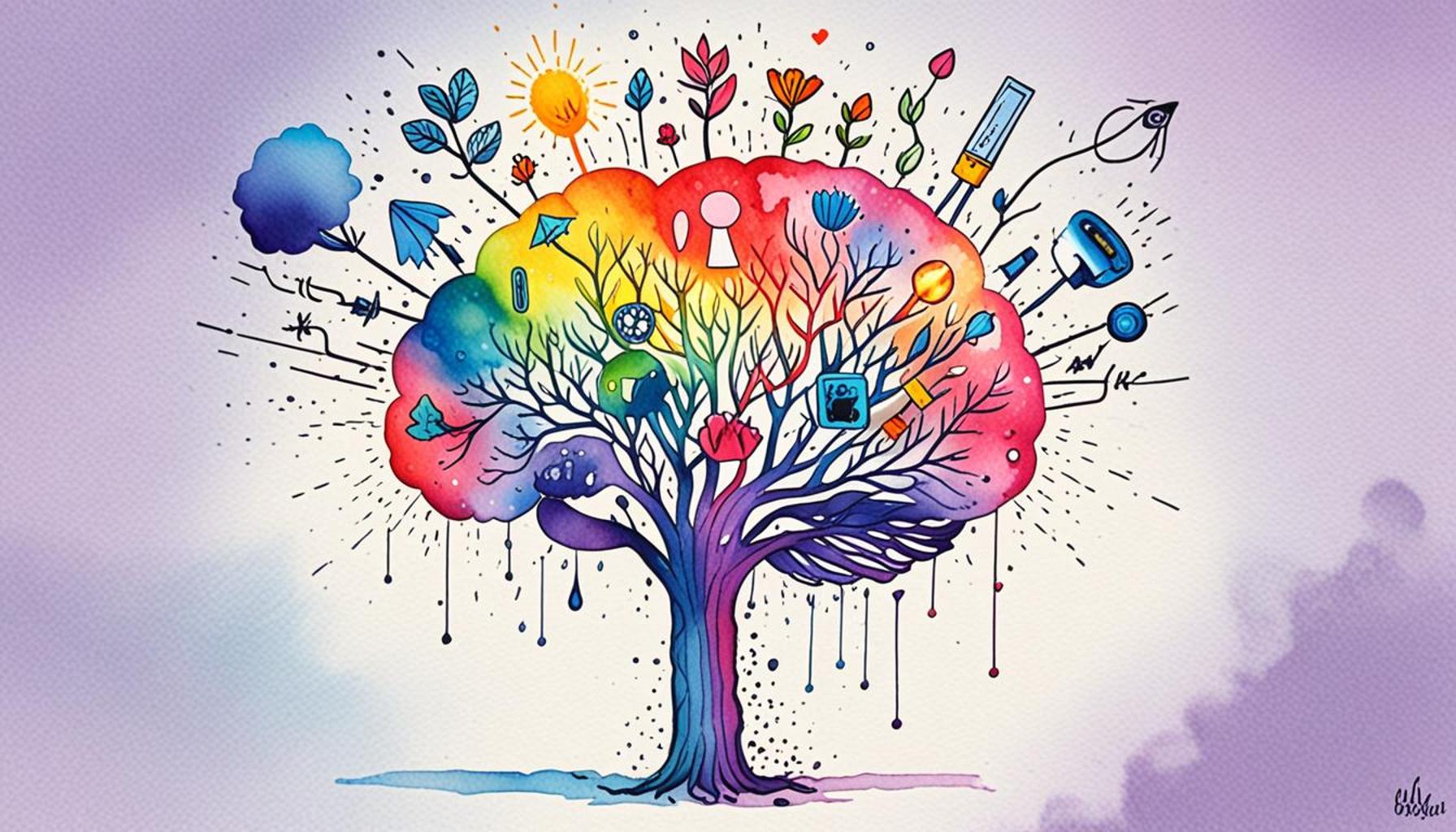Building Resilience in Children: Growth Mindset Strategies for Emotional Development

The Importance of Resilience in Childhood Development
In an era where children often face a myriad of challenges, including social pressures, academic demands, and rapidly evolving technology, building resilience has become a foundational element of effective child development. Resilience equips children with the ability to handle adversity, recover from disappointments, and engage with life positively. The journey towards becoming resilient is multifaceted, tapping into emotional, social, and cognitive resources.
At the heart of nurturing resilience is the concept of a growth mindset. This idea, popularized by psychologist Carol Dweck, encourages children to view their capabilities as malleable rather than fixed. By instilling this belief, children learn that challenges are not roadblocks but opportunities for growth. For instance, a child who struggles with mathematics might initially feel discouraged. However, by adopting a growth mindset, they start to see that with consistent practice, their skills can improve. This not only fosters a love for learning but also instills a lifelong approach to problem-solving.
Why is Emotional Development Important?
Emotional development serves as a cornerstone for thriving in life’s varied experiences. Children who are emotionally literate can:
- Manage their feelings effectively, enabling them to process experiences thoughtfully and avoid becoming overwhelmed.
- Build strong relationships with peers, fostering social connections that provide support during difficult times.
- Enhance their problem-solving skills as they learn to navigate interpersonal conflicts and academic challenges with greater ease.
In Nigeria, the rich tapestry of diverse cultures brings unique influences on a child’s emotional and social development. For example, communal values often emphasize collaboration and support. By harnessing these cultural strengths, children can thrive, particularly when they embrace a growth mindset. This cultural context encourages children to see the value in assisting each other and to view challenges as collective opportunities for improvement.
Children who adopt a growth mindset are more likely to experience:
- Increased academic performance, as they learn to tackle subjects they once found difficult.
- Higher self-esteem, stemming from their ability to overcome obstacles and achieve personal goals.
- A greater willingness to take risks, enhancing their ability to engage in new experiences without fear of failure.
By engaging parents and educators in practical strategies, such as role-playing scenarios or encouraging expressions of feelings, we can significantly bolster a child’s emotional development and resilience. For example, storytelling sessions in classrooms can provide vital insights into managing emotions and developing empathy—key components of resilience. This endeavor isn’t just crucial for Nigerian children; it holds value for children worldwide, fostering a globally interconnected perspective on emotional health.
Ultimately, the journey towards resilience and emotional intelligence in childhood is profound and complex. With sustained efforts, parents and educators can create nurturing environments that allow children not only to soar academically but also to flourish personally, prepared to face the challenges of tomorrow.
YOU MAY ALSO LIKE: Read read another article
Growth Mindset: The Foundation of Resilient Children
At the core of resilience lies the empowering notion of a growth mindset, which transforms the way children engage with life’s challenges. Rather than viewing failure as a reflection of their abilities, children with a growth mindset see it as a stepping stone toward growth and improvement. In Nigeria, where academic pressures and societal expectations can be extremely high, nurturing this mindset is crucial for both emotional and educational success.
To effectively foster a growth mindset in children, parents and educators can implement a variety of strategies. One approach is to emphasize the process of learning rather than the outcome. For instance, instead of complimenting a child solely for scoring well on a test, it is important to acknowledge the hard work and strategies they employed to arrive at that success. This affirmation reinforces the idea that effort leads to improvement, motivating children to persevere through challenges.
Practical Strategies to Foster a Growth Mindset
Here are some effective strategies that parents and educators can utilize to cultivate a growth mindset in children:
- Encourage a love for learning: Always be on the lookout for new experiences that spark curiosity. Engaging children in creative activities like art, science experiments, or even local cultural practices can foster a lifelong passion for exploration.
- Model resilience: Children learn significantly from observing adults. By demonstrating your own resilience and displaying positive self-talk when faced with difficulties, you provide children with a powerful example of how to navigate challenges.
- Teach problem-solving skills: Encourage children to think critically about obstacles they encounter. Ask open-ended questions like, “What could you do differently next time?” or “How can you approach this problem from a new angle?” This nurtures their ability to find solutions independently.
- Celebrate effort over results: Create a culture at home and in educational environments where effort is honored. Celebrate small victories, like completing homework consistently or showing improvement in a challenging subject, to build confidence and resilience.
Incorporating the community aspect prevalent in Nigerian culture, parents and educators can also create group learning experiences that promote collaboration. In these settings, children can support one another through challenges, thereby enriching their learning experience and reinforcing the notion that everyone has the potential to grow.
Furthermore, it is vital to nurture emotional vocabulary among children. Teaching them how to express their feelings appropriately lays the groundwork for healthier interactions and self-reflection. By understanding their emotions, children can better navigate the ups and downs of academic and social pressures, leading them to embrace challenges with confidence.
As we further explore these strategies, it becomes clear that fostering resilience through a growth mindset is not merely about academic performance. It is about forging equipped individuals who can manage emotional challenges, build robust relationships, and become proactive problem solvers in a rapidly changing world.
Growth Mindset Strategies: Fostering Resilience in Children
In the ever-evolving landscape of child development, fostering a strong emotional foundation is crucial. A key approach is the growth mindset, a concept popularized by psychologist Carol Dweck. Encouraging this mindset can significantly impact children’s ability to cope with challenges and setbacks. When children understand that abilities can be developed through dedication and hard work, they are more likely to embrace challenges rather than shy away. This shift in perspective not only promotes resilience but also enhances their overall emotional development.One effective strategy to instill a growth mindset is through the language we use. For instance, praising effort rather than inherent talent teaches children that perseverance is a valuable trait. Instead of saying, “You are so smart,” consider the more constructive “You worked really hard on this!” This subtle change encourages children to view their abilities as malleable and cultivates a sense of agency over their own development.Moreover, adults can model desirable behaviors when facing difficulties. By sharing personal experiences of struggle and eventual success, adults provide relatable narratives that resonate with children. These stories serve as powerful examples of resilience in action. It’s important for children to see that failures are not endpoints but rather stepping stones to future success.Additionally, integrating challenges into daily routines, such as complex puzzles or new skills, fosters a natural atmosphere of learning and resilience. When children encounter difficulties in these activities, it’s a perfect opportunity to reinforce problem-solving skills and bolster their confidence in overcoming obstacles. An environment that nurtures exploration and supports risk-taking is essential for developing resilience. To further enrich this discussion, consider involving children in goal-setting activities. Encourage them to identify personal challenges and formulate actionable steps towards achieving their objectives. This process empowers them to take ownership of their growth, reinforcing the notion that their efforts lead to tangible improvements.By embedding these practices into the daily lives of children, caregivers and educators can build a robust framework for emotional development. This groundwork not only helps children bounce back from adversity but also equips them with lifelong skills to navigate the complexities of their future.
| Category | Description |
|---|---|
| Growth Mindset | Encouraging a belief in development through effort and learning. |
| Resilience Building | Teaching children to embrace challenges and view failures as opportunities to grow. |
By focusing on these essential strategies, parents, teachers, and community leaders can significantly influence children’s emotional development, paving the way for a brighter, more resilient future.
ADDITIONAL INSIGHTS: Expand your understanding here
The Role of Emotional Intelligence in Resilience
Building resilience in children goes hand in hand with fostering emotional intelligence. Teaching children to recognize, understand, and manage their emotions equips them with the tools necessary to handle life’s inevitable ups and downs. In the vibrant landscape of Nigeria, where diverse cultural expectations often interweave, enhancing emotional intelligence can significantly help children tackle peer pressures and family responsibilities more effectively.
A robust approach to emotional intelligence begins with providing children with ample opportunities to express their feelings. Encourage them to talk about their experiences and emotions after facing obstacles. For example, following a disagreement with friends or a disappointing result in school, ask them guiding questions such as, “How did that situation make you feel?” or “What do you think could have been done differently?” This practice not only helps them articulate their emotions but also reinforces the idea that it is okay to feel vulnerable at times.
Activities to Enhance Emotional Intelligence
Here are several engaging activities that can bolster emotional intelligence in children and in turn, build their resilience:
- Emotion Cards: Create a set of cards featuring different emotions with visual cues. Play games where children have to match situations to the corresponding feelings. This activity helps them see the spectrum of emotions and normalizes their feelings.
- Role-Playing: Initiate role-playing scenarios that allow children to act out various social situations. By navigating conflicts or challenging interactions virtually, they can safely explore different emotional responses and solutions.
- Storytelling Sessions: Use traditional Nigerian folktales that illustrate emotional lessons. After the story, engage children in discussions about the characters’ emotions, decisions, and consequences, enabling them to see real-life application of emotional awareness.
- Mindfulness Practices: Incorporate simple mindfulness exercises, such as breathing techniques or guided visualization, that can help children learn to manage anxiety and promote emotional regulation. As they practice calming their minds, they develop resilience against stressors.
Education systems can also play a crucial role in reinforcing emotional intelligence among children. Schools can integrate social-emotional learning curricula as part of their regular lessons, teaching students essential skills such as empathy and teamwork. In many regions of Nigeria, schools are beginning to realize that emotional competency is as important as academic achievement, and this shift promises to create more harmonious learning environments.
In addition to formal learning, peer collaborations are instrumental in developing emotional intelligence. Group activities, peer mentoring programs, and community service projects can offer children opportunities to connect with others and strengthen their emotional skills. Engaging with a diverse peer group enriches their emotional framework and teaches the significance of empathy in culture.
Ultimately, cultivating emotional intelligence lays a resilient foundation for children. As they grow more in tune with their emotions and the emotions of others, they become better equipped to face challenges head-on. By merging emotional intelligence with a growth mindset, we empower children to navigate their academic and social landscapes with confidence and grit, essential qualities for thriving in today’s world.
CHECK OUT: Click here to explore more
Conclusion
In a rapidly changing world, the need for children to develop resilience has never been more critical. The strategies highlighted in this article—integrating emotional intelligence with growth mindset techniques—empower young minds to not only withstand challenges but flourish in adverse conditions. By encouraging children to recognize and articulate their emotions, we foster a supportive environment that nurtures their ability to bounce back from setbacks.
Moreover, the incorporation of engaging activities, such as role-playing and storytelling, facilitates deeper emotional understanding, allowing children to see their experiences reflected in relatable scenarios. These methods, particularly within the context of Nigerian culture, illuminate the importance of community and shared emotions, promoting lasting connections that enhance resilience. The educational framework plays a pivotal role as well; schools that emphasize social-emotional learning alongside academic curriculum can create balanced and holistic development opportunities for students.
As parents, educators, and community leaders champion these principles, it is imperative to also lead by example. Demonstrating a growth mindset in our own lives sets a powerful precedent for children to emulate. Resilience is not just an isolated trait but a collective responsibility that calls for unity and proactive engagement in our children’s emotional development. The journey towards building resilience in children can make a profound difference that shapes future generations, equipping them with the skills they need to thrive in a world full of opportunities and challenges alike.



